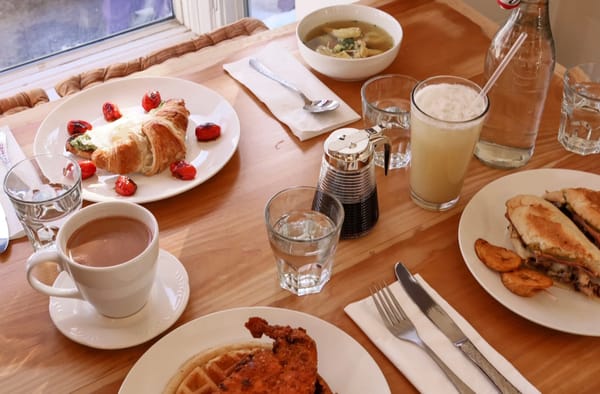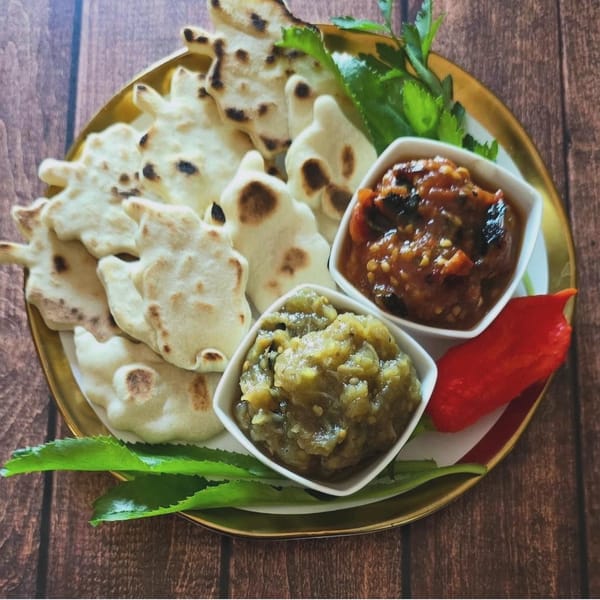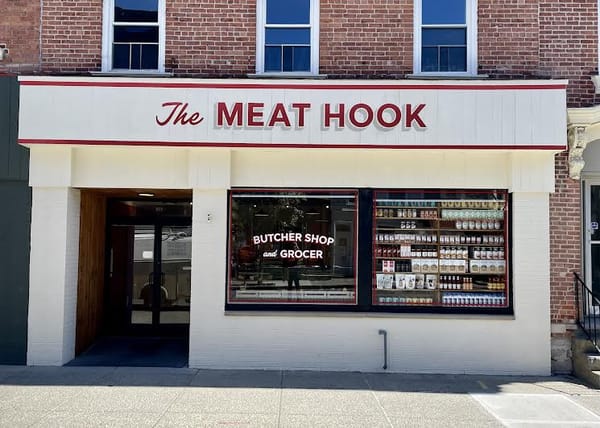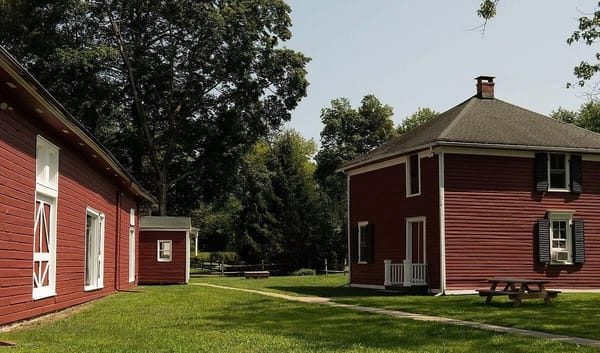.jpg)
AgriCulture bloggers Peter Davies and Mark Scherzer are the owners of Turkana Farms in Germantown, NY. This week, Peter writes: This is the week of the great release. Our 100 or so heritage turkey poults finally, after more than two months of confinement, have reached a size that they no longer can be carried off by the red tailed hawks and other predators. So we opened the hatch to the outside and most of them (the brave ones) rushed out excitedly for their first experience of sunlight and wind, and reveled in their freedom to forage for themselves. They found their new world to be a spacious compound grown up with waist high oats and weeds, which, in not much more than a month, they will graze as bare as the Gobi Desert. By the second day, the stay-at-homes and cautious ones had also joined the others outside. The liquid gurgling sound they made as they moved amongst the oats and weeds said everything about their pleasure. From now till Thanksgiving, they will spend every day on pasture, only to be driven into their sleeping porch at nightfall to protect them from predators. Discovering 19 of them one morning several years ago scattered about the compound, bloody and headless, ended their nights sleeping in the apple trees. It was a horned owl that did the deed, we think. Our Toulouse goslings were next to be released. In the almost military order that is characteristic of the breed, they waddled, under my wand’s direction, in a tight gabbling phalanx down the block-long turkey compound to the lower pasture.and with just a few movements of my wand, they obediently marched into their new hut, where they will be closed in every night. By the second day they were making cautious forays out into the pasture to graze. .But they have not yet worked up the courage to wander as far as the little pond under the willow. Turkeys typically rush in where angels fear to tread. But not geese.

Our shy, yellow ducklings next followed in the exodus from the brooder houses. But with their rather hysterical nature, there was no prospect of walking them in an orderly way to their new world. Instead they were gathered in a large garden cart, covered with a sheet and trundled to their portable pen, where they will safely overnight. We learned quite a few years ago that ducks could not survive outdoors at night, as each morning we had the depressing experience of discovering yet another missing or maimed duck. For us the expression “like a sitting duck” took on new resonance. On the second day we left the portable duck pen door ajar, and soon most (but not all of them) mustered the courage to venture out to graze in the fenced area between the turkey compound and the vegetable garden. We are trying another breed this year, the Muscovy, actually a type of duck most people are familiar with. Unfortunately we could not convert our customers into accepting the smaller, leaner French Rouen duck despite our eloquent explanations and the French recipes we supplied. This new, improved breed of Muscovy will, we have been assured by our hatchery, reach a much larger size and in a shorter period of time.

In the next few days our fifty meat chickens, the French Freedom Rangers, will also be released, leaving their brooder boxes to take up residence on pasture, sleeping at night in their portable pen for safety. We are leaving the Cornish/cross chickens we have grown in the past behind for the Freedom Rangers, which are a relatively new French breed, pasture grazers that produce, we think, a better tasting chicken. Last year we raised an equal number of each breed, and we invited our customers to sample both and give us their responses. On the basis of those responses and our own tastings, as well as some research into fat and nutrient content, we have voted this year to move entirely into Freedom Rangers even though they take considerably longer to reach market size. Would that things ran this smoothly with the vegetable garden and berry bushes. A particularly brutal winter seems to have considerably reduced the berry crops this year. Strawberries were sparse and small and rather malformed. And the birds and chipmunks seem to have gotten most of them. The raspberries are also producing a pathetically sparse crop; hopefully on the next flowering we will be lucky. The gooseberries and black currants (partly because of the winter and Mark’s radical pruning) likewise have produced very little. Only the blackberries, it seems, are going to live up to their potential. We are thankful we planted the hardy Illini breed. Our vegetable garden struggles along, enduring days and days of rain and high humidity and precious little sun. Rain seems to come these days only in deluges, and the sun, when it does appear, is scorching. Thunder storms and winds have become increasingly violent. And there has been the constant threat of hailstorms and even tornadoes. These extremes of weather are not conducive to growing crops.
.jpg)
But while plants like tomatoes (which are again threatened by tomato blight), and corn (which so far has looked rather stunted) have not been thriving, spinach and lettuce have. And, surprisingly, as we discovered as we took up our garlic this weekend, we have produced the most beautiful and bountiful crop yet. But so far this is one of the few bright spots. The news we have been getting from other farmers supports our impression that, indeed we are experiencing the effects of climate change. Perhaps only a know-nothing faction of the Republicans can believe that this is not happening. But with matters having to do with climate, we should not be in the realm of religion (which is a matter of faith and belief) but rather science (which is a matter of empirical observation). It is hard for me to imagine that farmers can remain Republicans for long when they see what they are experiencing so directly and intensely on a daily basis adamantly denied. —Peter DaviesFor the complete archive of past AgriCulture blogs, click here.








